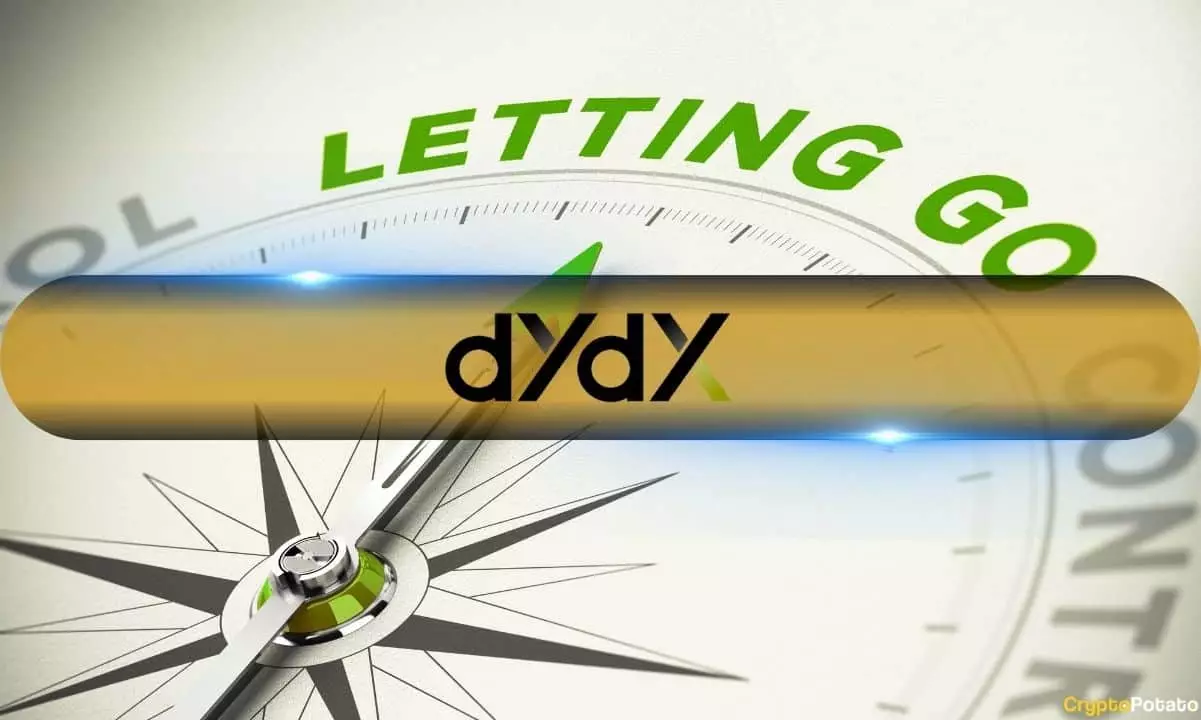In today’s ever-evolving digital finance sector, decentralized trading platforms play a pivotal role. dYdX, a notable Swiss-based entity in this realm, recently made headlines with significant workforce reductions. The announcement of a 35% cut to its core team stirred a variety of reactions—ranging from shock to concern among investors and partners. This move hints at broader implications, not only for dYdX but also for the decentralized finance (DeFi) industry as a whole. As the market continues to grapple with competition and regulatory challenges, understanding the motivations and consequences behind such decisions becomes essential.
In a candid post on social media, CEO Antonio Juliano characterized the layoffs as deeply regrettable but framed them as necessary for the long-term health of dYdX. His assertion that the layoffs were non-financial in nature led to questions about what actually prompted such drastic measures. In a follow-up blog entry titled “Letting Go,” Juliano explained that these reductions were driven by a desire to streamline operations. This aligns with a common trend in tech industries, where companies often undergo restructuring to eliminate overlapping roles and refocus on their core missions.
The CEO’s reflections touched upon a broader theme of deviation from dYdX’s initial vision, indicating a need not only for a leaner team but also for renewed clarity in purpose. Such introspection could resonate with employees and stakeholders yearning for reassurance in a volatile marketplace. The dynamic nature of leadership decisions, especially in competitive arenas like DeFi, makes it imperative that these choices also inspire confidence rather than despondency.
Despite the significant job cuts, the juxtaposition of ongoing hiring initiatives raises eyebrows. The dYdX team, notably composed of industry veterans from tech giants like Google and Amazon, has been sought after, and even in times of uncertainty, the company seeks to fill critical roles such as a lead trading infrastructure engineer and several software engineering positions. This duality reflects a broader narrative—while certain segments may have been deemed redundant, dYdX still recognizes the importance of acquiring specialized talent to maintain its competitive edge.
Nevertheless, the simultaneous announcement of layoffs and new job openings poses a dilemma. Potential candidates might be apprehensive about joining a company unable to stabilize its workforce. Reputational risks emerge as teams grapple with morale after layoffs while simultaneously trying to attract new talent.
The timing of dYdX’s workforce reduction coincides with a challenging year for the company, navigated under heightened competition from emerging platforms such as Hyperliquid. With Hyperliquid’s total value locked (TVL) soaring to nearly $859.29 million, compared to dYdX’s notable decline to $287.61 million, the urgency for strategic realignment becomes more apparent. The shift back to “Founder Mode” indicates a hands-on approach by Juliano, suggesting a need for re-engagement with not only the internal team but also with the platform’s users and investors.
Moreover, the recent challenges that dYdX faces diverge from isolated corporate issues; they reflect broader industry dynamics. With regulatory pressures—especially intensified by the stance of the U.S. SEC—affecting many operators in the crypto space, other players like ConsenSys have also embarked on workforce reductions. Such reductions prompt legitimate concerns about innovation stifling in the face of regulatory scrutiny.
The aftermath of dYdX’s decision resonates beyond immediate business repercussions; it embodies a critical juncture in the ongoing conversation surrounding decentralized finance. Layoffs, unfortunately, constitute an all-too-familiar narrative in the tech sector. As companies strive to redefine their trajectories, what must be prioritized is a focus on not just surviving but thriving amid fierce competition and regulatory challenges.
While dYdX’s strategic retrenchment may serve as a necessary precursor to rejuvenation, it remains essential to recognize the interconnected nature of these decisions. They must take into account the evolving landscape surrounding decentralized finance and remain responsive to the shifting tides of the market. Only time will tell if these measures result in the revival of dYdX’s ambitions or if they signal deeper-rooted issues within the crypto ecosystem. The path forward will likely be defined by adaptability, innovation, and a recommitment to the core values that initially fueled the platform’s rise.

